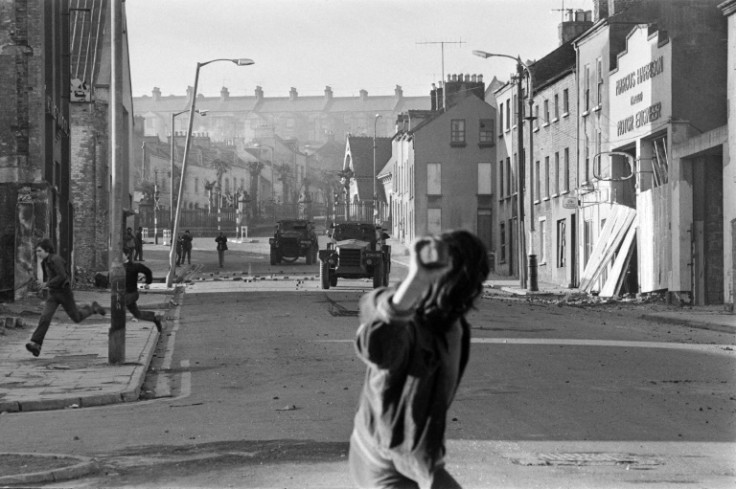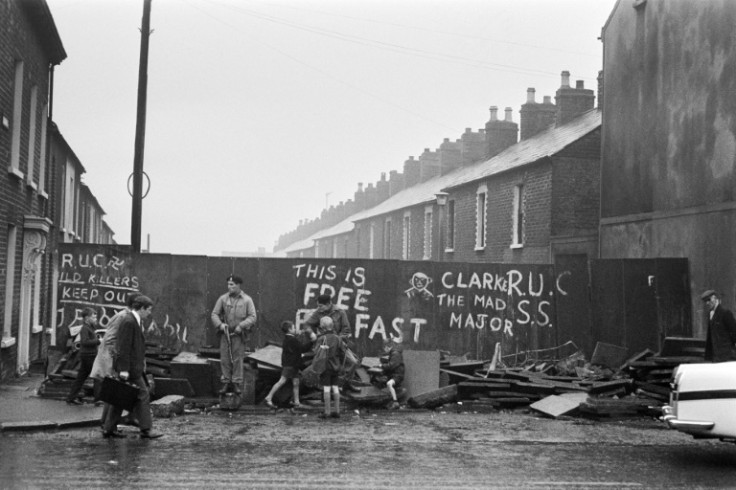
The actions of a prized double agent within paramilitary group the IRA who worked for British security services probably led to more lives being lost than saved in Northern Ireland, an independent investigation said on Friday.
An interim report on the seven-year probe made 10 recommendations after examining 101 murders and abductions linked to a unit of the Irish Republican Army headed by the double agent, who was codenamed "Stakeknife".
Stakeknife headed the IRA internal security unit responsible for interrogating and torturing suspected British security forces informants, during three decades of sectarian conflict in Northern Ireland.
The investigation by England's Bedfordshire Police -- known as "Operation Kenova" -- stopped short of confirming widespread reports that Belfast man Freddie Scappaticci was Stakeknife.
Scappaticci, who fled Northern Ireland in 2003 after the allegations first became public, died last year.
But its review of around 90 percent of intelligence reports attributed to Stakeknife determined that the number of lives they helped to save was "nowhere near" the hundreds previously claimed.
The 208-page report, written by former Bedfordshire police chief Jon Boutcher, instead estimated that the number was in the high single figures or low double figures.
"Crucially, this is not a net estimate because it does not take account of the lives lost as a consequence of Stakeknife's continued operation as an agent," he stated.
"From what I have seen, I think it probable that this resulted in more lives being lost than saved," added Boutcher, who last October became chief constable of Northern Ireland's police force.
Northern Irish prosecutors have ruled out charging anyone related to the probe, after examining its work.
Former police officers, ex-military personnel and people linked to the IRA were among 32 individuals considered for prosecutions, including for murder, abduction, misconduct in public office and perjury.
The Kenova probe was set up in 2016 to examine crimes linked to Stakeknife and the role played by security services, including Britain's domestic intelligence agency MI5.
Stakeknife headed the IRA's so-called "nutting squad", which brutally questioned and murdered suspected spies, according to media reports.
Scappaticci admitted being an IRA member during the three decades of violence over British rule in Northern Ireland, known as the Troubles, but denied working for British agents.
Some 3,500 people were killed before the conflict largely ended with the Good Friday Agreement in 1998.
The Kenova investigation, which cost GBP40 million ($51 million), made recommendations including urging authorities to review a "Neither Confirm Nor Deny" policy that prevents the identification of agents involved in many historical Troubles cases.
A group representing victims and their relatives called the first report "an important step in providing information to families".
"What was clear in this process is that the families of those who lost loved ones wanted access to the truth," it said.
Lawyer Kevin Winters, representing some victims, said the report left them concluding that British authorities and the IRA were "co-conspirators" in murder.
He called the findings a "damning indictment on the state" and demanded a public inquiry into "state penetration" of the IRA.
"Today's report does not end the Stakeknife saga. On the contrary, it signposts the need for further probing," Winters told a Belfast press conference.
Northern Ireland's First Minister, Michelle O'Neill, whose pro-Irish nationalist Sinn Fein party was once the political wing of the IRA, urged the UK government to apologise.
London said it would respond when the final report is released.
Separately, the government last year passed a controversial law granting immunity to combatants in the Troubles.
But the High Court in Belfast last week ruled it breaches the European Convention on Human Rights (ECHR).
The government has said it will appeal against the decision.








